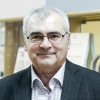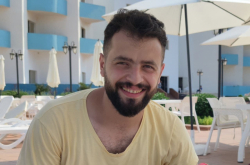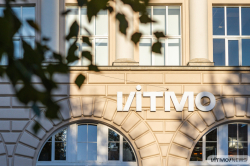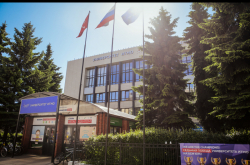Most people today have a superficial understanding of what information security is. We mostly hear about hackers, who break security systems either for fun or for their own financial gain. Information security can also be breached internally, say by a disgruntled employee. They could, for example release important, confidential data to a competitor, or use it for blackmail or other purposes. There’s also the effect of viruses or «accidentally deleting» something, which could lose valuable company information.
Igor Zikratov, Dean of the Faculty of Information Security and Computer Technologies, explained that an information security specialist is not a «spy». «A specialist should consider all the risks for information that may arise from different sources. Unfortunately, today’s prospective students have a vague idea about this area and where they can work after graduation. We want to rectify this situation and explain to school students what information security is all about.»

To achieve this objective, the Department of Secure Information Technologies is holding an inter-university competition called SPbCTF, on the 8th and 9th October at ITMO University. The participants will solve problems at various levels of complexity in cryptography, reverse engineering, security analysis of websites, computer-based investigations and more. Representatives from the Faculty of Information Security and Computer Technologies (IS&CT) as well as companies in the field will also be present. Professionals will explain to students where graduates could potentially work and what they need to learn.
In this vein, the IS&CT Faculty is thinking about how ideas from businesses can be implemented in the educational programs. «We are planning to diversify educational programs by specific areas, which will be expected of our graduates», explained the Dean, «Representatives from businesses will help us with this. As a result, our graduates will be the most competitive on the labour market». Despite the focus on including industry needs, the educational programs will continue to focus on fundamental areas of knowledge such as computer science, mathematics and physics, necessary for any information security specialist.

Until recently, most graduates in information security would get jobs in major Russian companies like Kaspersky Lab, Dr. Web or Business Espionage Counteraction Lab. However, now the market depends on specific types of specialists in this area. For example, one company is looking for professionals in the field of software development or mathematical modelling of security systems based on artificial intelligence. Another company is looking for designers in the area of microelectronics for the development of technical means for information protection. Yet another is looking for specialists who know the law well and understand the standards in the fields of information security.
The new educational programs at ITMO University will be in the field of cyber security, security of cyber-physical systems (systems, synchronization and automation of various industrial processes, mobile robotics, unmanned vehicles etc.), competitive intelligence (gathering data on competitors in order to build a more effective marketing strategy) and other applied aspects.
Both the educational programs, and the number of threats, methods and means of protection against them, are growing and evolving simultaneously.

The gap between university and industry is disappearing and businesses expect graduates who are immediately prepared for the workforce, and thus companies cooperate with universities in their educational programs. As such the departments at the IS&CT Faculty are currently cooperating with major Russian companies such as SearchInform, InfoWatch, Positive Technologies, Radar MMS GazInformService, Business Espionage Counteraction Lab etc. Many of them have installed equipment in ITMO classrooms for student’s use.
«We often meet with information security company managers at conferences and other events, where they express their wishes for what they’d like to be included in the educational programs.» explained Mr. Zikratov, he also shared that now educational programs are built around the demand of businesses. Some collaborations are already underway, thereby updating existing educational programs to become closer to the market.






